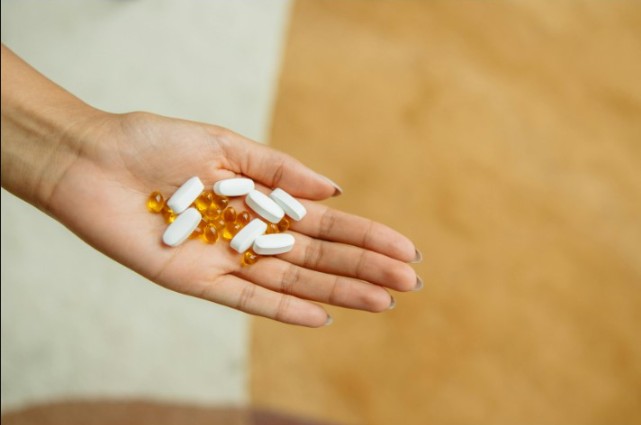Drug addiction is one of the most challenging public health crises affecting individuals, families, and communities worldwide. The journey to recovery is often long and complex, requiring a combination of medical, psychological, and social interventions. Among these, medication plays a pivotal role in managing withdrawal symptoms, reducing cravings, and preventing relapse. In this article, we will explore in-depth the medications used to treat drug addiction and the critical role they play in recovery.
Understanding Drug Addiction and Its Impact
Drug addiction is a chronic disease characterized by compulsive drug seeking and use, despite harmful consequences. It affects the brain's reward system, making it difficult for individuals to stop using substances even when they want to. Addiction not only impacts physical health but also mental well-being, relationships, and overall quality of life. To combat this issue, treatment must address the biological, psychological, and social aspects of the disease.
The Connection Between Addiction and Mental Health
It is common for individuals with drug addiction to also experience mental health disorders such as depression and anxiety. The question often arises: can you have depression and anxiety while battling addiction? The answer is yes. These conditions frequently co-occur and are referred to as co-occurring disorders or dual diagnoses. Addressing both addiction and mental health issues simultaneously is essential for successful recovery. Medications, combined with therapy, can help manage symptoms of both conditions, creating a more stable foundation for healing.
Medications Used to Treat Drug Addiction
Medications for Opioid Addiction
Opioids, including heroin and prescription painkillers, are highly addictive substances that have led to a global epidemic. Medications used to treat opioid addiction include:
Methadone: Methadone is a long-acting opioid that helps reduce withdrawal symptoms and cravings. It is administered under medical supervision and is particularly effective in stabilizing individuals during their recovery journey.
Buprenorphine: This medication acts on the same opioid receptors in the brain as methadone but is considered safer due to its lower potential for misuse. Buprenorphine can be prescribed in outpatient settings, making it more accessible for patients.
Naltrexone: Unlike methadone and buprenorphine, naltrexone blocks the effects of opioids in the brain, preventing individuals from experiencing a "high." This makes it an effective option for preventing relapse.
These medications are often part of Medication-Assisted Treatment (MAT), which combines medication with behavioral therapies to provide comprehensive care.
Medications for Alcohol Addiction
Alcohol addiction is another widespread issue that requires medical intervention. The most commonly used medications for alcohol addiction include:
Disulfiram: This medication works by creating an unpleasant reaction if alcohol is consumed, including symptoms like nausea, vomiting, and flushing. It acts as a deterrent, discouraging individuals from drinking.
Naltrexone: In addition to its use for opioid addiction, naltrexone is effective in reducing alcohol cravings and minimizing the rewarding effects of alcohol consumption.
Acamprosate: Acamprosate helps restore the chemical balance in the brain disrupted by prolonged alcohol use, reducing the risk of relapse and supporting long-term recovery.
Medications for Nicotine Addiction
Nicotine addiction, often resulting from cigarette smoking, is one of the most common forms of addiction. Medications that can help individuals quit smoking include:
Nicotine Replacement Therapy (NRT): NRT products, such as patches, gums, and lozenges, provide a controlled dose of nicotine to ease withdrawal symptoms and reduce cravings.
Varenicline: This medication targets nicotine receptors in the brain, reducing the urge to smoke and making smoking less rewarding.
Bupropion: Originally developed as an antidepressant, bupropion is also effective in helping individuals quit smoking by reducing withdrawal symptoms and cravings.
Medications for Stimulant Addiction
Addiction to stimulants like cocaine and methamphetamine poses unique challenges, as there are currently no FDA-approved medications specifically for these substances. However, some off-label treatments have shown promise:
Modafinil: This medication improves cognitive function and reduces cravings in individuals recovering from stimulant addiction.
Antidepressants: Certain antidepressants are used to manage mood disorders and withdrawal symptoms associated with stimulant addiction.
The Role of Therapy in Addiction Treatment
Combining Medications with Psychotherapy
While medications address the physical aspects of addiction, therapy focuses on the emotional and behavioral components. Together, they form a comprehensive treatment approach that increases the likelihood of long-term recovery.
Cognitive-Behavioral Therapy (CBT): CBT helps individuals identify and change negative thought patterns and behaviors related to their addiction.
Group Therapy: Sharing experiences in a group setting provides emotional support and fosters a sense of community among individuals in recovery.
Family Therapy: Addiction often affects entire families. Family therapy helps repair relationships and creates a supportive environment for the individual in recovery.
Advanced Psychiatry Associates: A Comprehensive Approach
Expert Care Across California
Advanced Psychiatry Associates is a leading provider of addiction treatment services in California, with 15 locations across Sacramento, Los Angeles, and San Diego. They offer a range of evidence-based treatments tailored to the unique needs of each patient.
Integrated Treatment Plans
Their team of experienced professionals combines medication, therapy, and holistic support to address both addiction and co-occurring mental health conditions. This integrated approach ensures that patients receive the comprehensive care they need to achieve lasting recovery.
Conclusion
Drug addiction is a treatable condition, but recovery requires a multi-faceted approach that addresses both physical and psychological aspects of the disease. Medications play a critical role in managing withdrawal symptoms, reducing cravings, and preventing relapse. However, they are most effective when combined with therapy and support systems.
If you or someone you love is struggling with addiction, it’s important to seek professional help. Advanced Psychiatry Associates offers expert care in multiple locations across California, providing the tools and support needed to overcome addiction.
Contact Us Today through out our number (+18772725818 )or register now via our Patient Portal, At Advanced Psychiatry Associates, we’re here to support you on every step of your recovery journey







